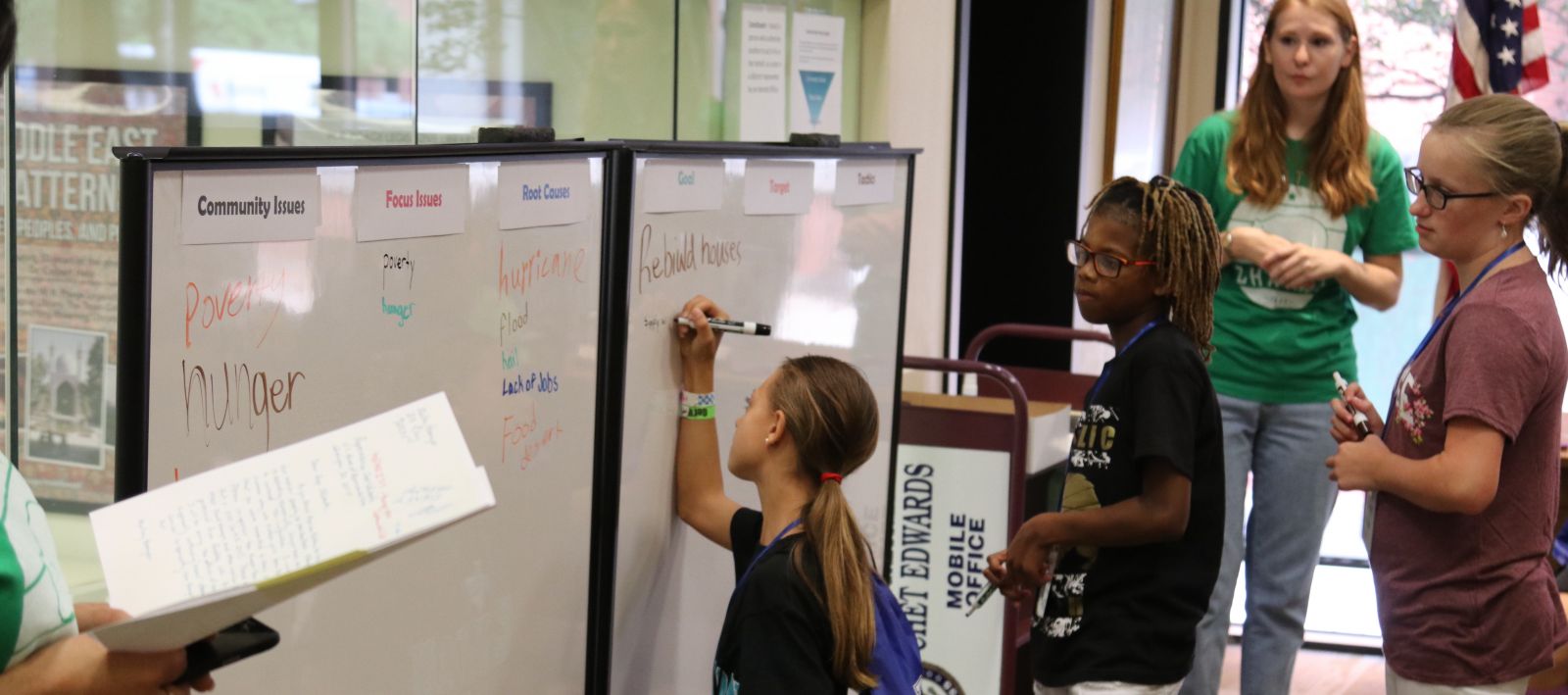Molly Justice
Director of Communications and Online Media
National Center for State Courts
Baylor University’s iEngage Summer Civics Institute named 2022 Sandra Day O’Connor Award recipient
Williamsburg, Va., (May 10, 2022) – The iEngage Summer Civics Institute at Baylor University has been named the 2022 recipient of the Sandra Day O’Connor Award for the Advancement of Civics Education.
This annual award, presented by the National Center for State Courts, honors an organization, court, program, or individual who has promoted, inspired, improved, or led an innovation or accomplishment in the field of civics education related to the justice system.
Founded in 2013, the Baylor iEngage Summer Civics Institute is a free, five-day civics camp designed to help middle school students learn how to make a difference in their schools, neighborhoods and communities. Funded by the Hatton W. Sumners Foundation and Baylor University, the program is led by Baylor School of Education faculty members Brooke Blevins, Ph.D. and Karon LeCompte, Ph.D.
“The iEngage team embraces their responsibility to provide high-quality civic education to students and educators across various communities and has even bigger plans, including a high school internship program,” wrote Texas Supreme Court Chief Justice Nathan Hecht in his nomination letter. “I am so proud that Texas lays claim to this innovative and effective program, and I am hopeful that the model will expand to other states in time.”
The 2022 award marks the 12th year NCSC has presented the O’Connor Award to honor the retired justice’s longstanding commitment to improving civics education. Following her service on the bench, Justice O’Connor became a tireless advocate of civics education and founded the iCivics program to inspire students to become active in their communities.
Baylor’s week-long iEngage camp focuses on developing young people’s civic and political competence and strengthening their community and political engagement through inquiry-based civics projects in which they research and act upon local community issues. Targeting middle school youth, iEngage teaches students about the structure of government, what it means to be an active and engaged citizen in their community and how they can work to make a change even as a young person. Campers are assigned to small groups based on grade level and work together to research and strategize about how to address a local issue of concern. Baylor students studying education serve as the counselors for each of these small groups.
Additional activities include a field trip to a legislative library to explore primary source artifacts, simulations of effective communication and deliberation hosted by the Baylor Law School, interfaces with local civic and political leaders, and playing iCivics games. The Baylor iEngage program has reached more than 1,500 students, 40 teachers, and 100 college students to date.
The impact of iEngage is well documented by research conducted and published in peer-reviewed journals by Baylor faculty.
“In addition, we see student impact through media coverage, including stories of campers who have gone on to organize community projects on their own, as well as through the many letters of appreciation we receive from campers, parents, and teachers,” Blevins said.
